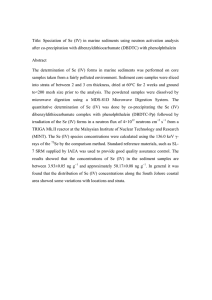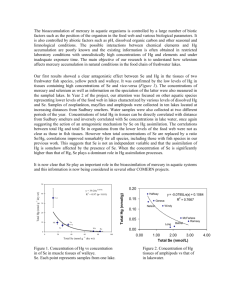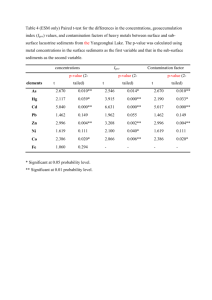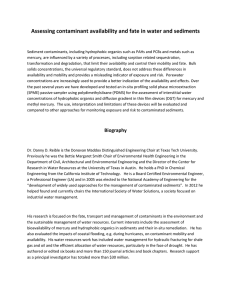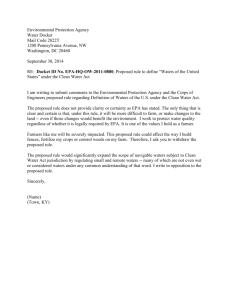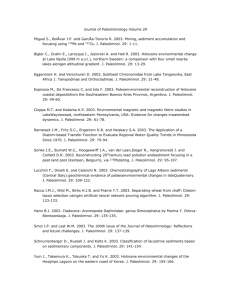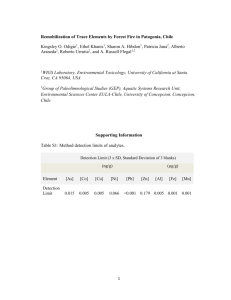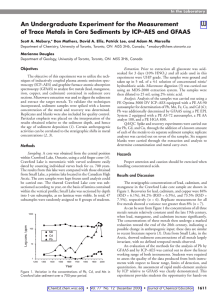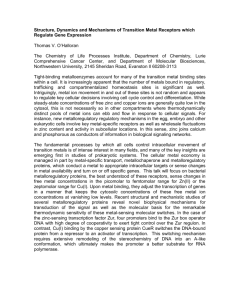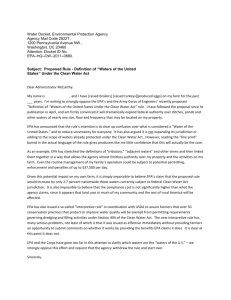Heavy metal concentrations in water and surface sediments of
advertisement
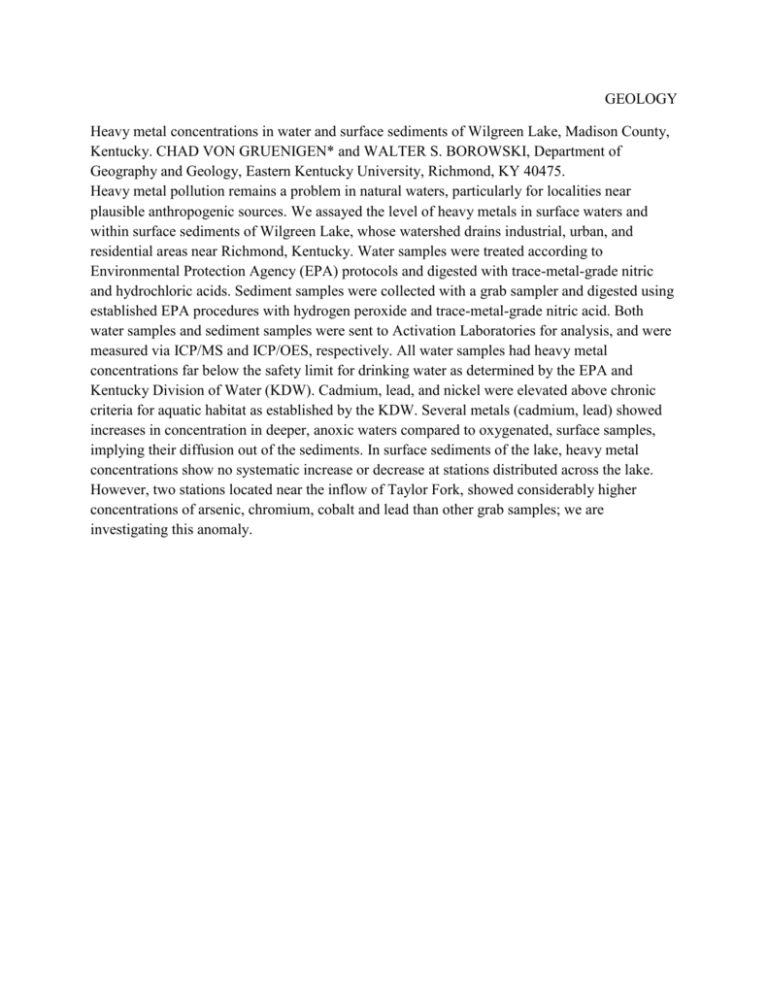
GEOLOGY Heavy metal concentrations in water and surface sediments of Wilgreen Lake, Madison County, Kentucky. CHAD VON GRUENIGEN* and WALTER S. BOROWSKI, Department of Geography and Geology, Eastern Kentucky University, Richmond, KY 40475. Heavy metal pollution remains a problem in natural waters, particularly for localities near plausible anthropogenic sources. We assayed the level of heavy metals in surface waters and within surface sediments of Wilgreen Lake, whose watershed drains industrial, urban, and residential areas near Richmond, Kentucky. Water samples were treated according to Environmental Protection Agency (EPA) protocols and digested with trace-metal-grade nitric and hydrochloric acids. Sediment samples were collected with a grab sampler and digested using established EPA procedures with hydrogen peroxide and trace-metal-grade nitric acid. Both water samples and sediment samples were sent to Activation Laboratories for analysis, and were measured via ICP/MS and ICP/OES, respectively. All water samples had heavy metal concentrations far below the safety limit for drinking water as determined by the EPA and Kentucky Division of Water (KDW). Cadmium, lead, and nickel were elevated above chronic criteria for aquatic habitat as established by the KDW. Several metals (cadmium, lead) showed increases in concentration in deeper, anoxic waters compared to oxygenated, surface samples, implying their diffusion out of the sediments. In surface sediments of the lake, heavy metal concentrations show no systematic increase or decrease at stations distributed across the lake. However, two stations located near the inflow of Taylor Fork, showed considerably higher concentrations of arsenic, chromium, cobalt and lead than other grab samples; we are investigating this anomaly.
